During discussion following some initial evaluation of air intake systems the topic of temperature inside the engine compartment came up. The subject of underhood temperature was introduced as a consideration when choosing between a ‘closed’ or ‘open’ intake air system.
The first question I had was, ‘what are the underhood temperatures like?’
The Setup:
After hearing statements made that the underhood temperatures become high, and then another that they are not significantly greater than ambient, I decided to undertake looking into the matter for myself.
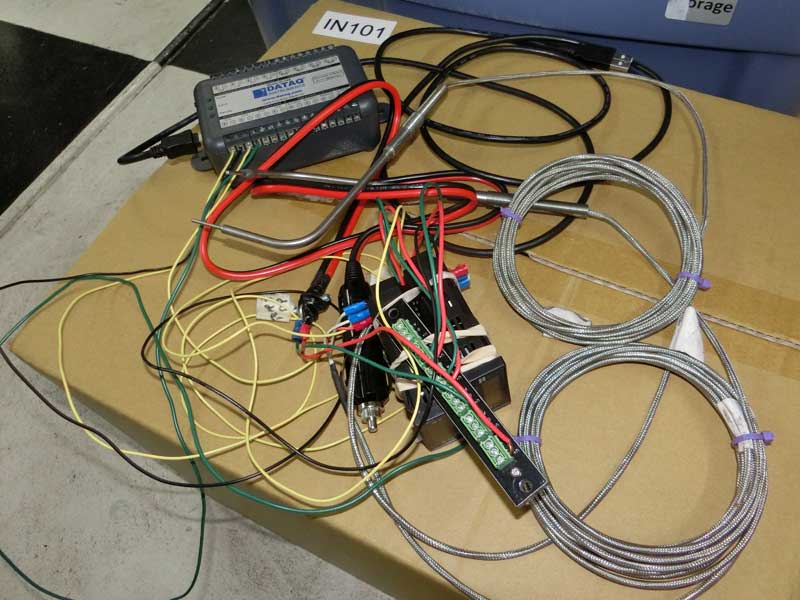
Assembled are a pair of resistance temperature detector (RTD) sensors, power distribution block, digital thermometer with analog output, and a high-speed multi-channel data logger.
The equipment fits into the open space in the engine compartment near the stock airbox.
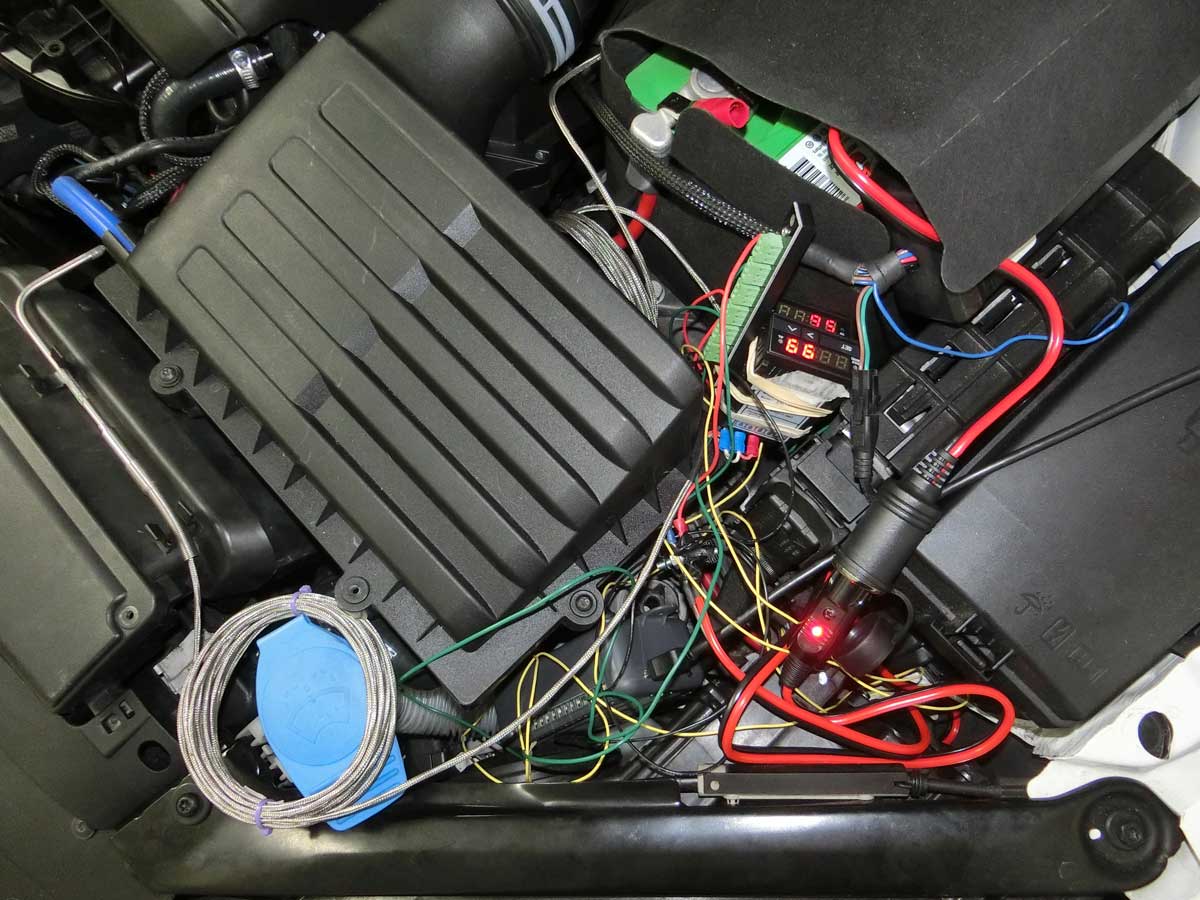
One temperature sensor is placed at the front of the engine compartment near the airbox, shown below:
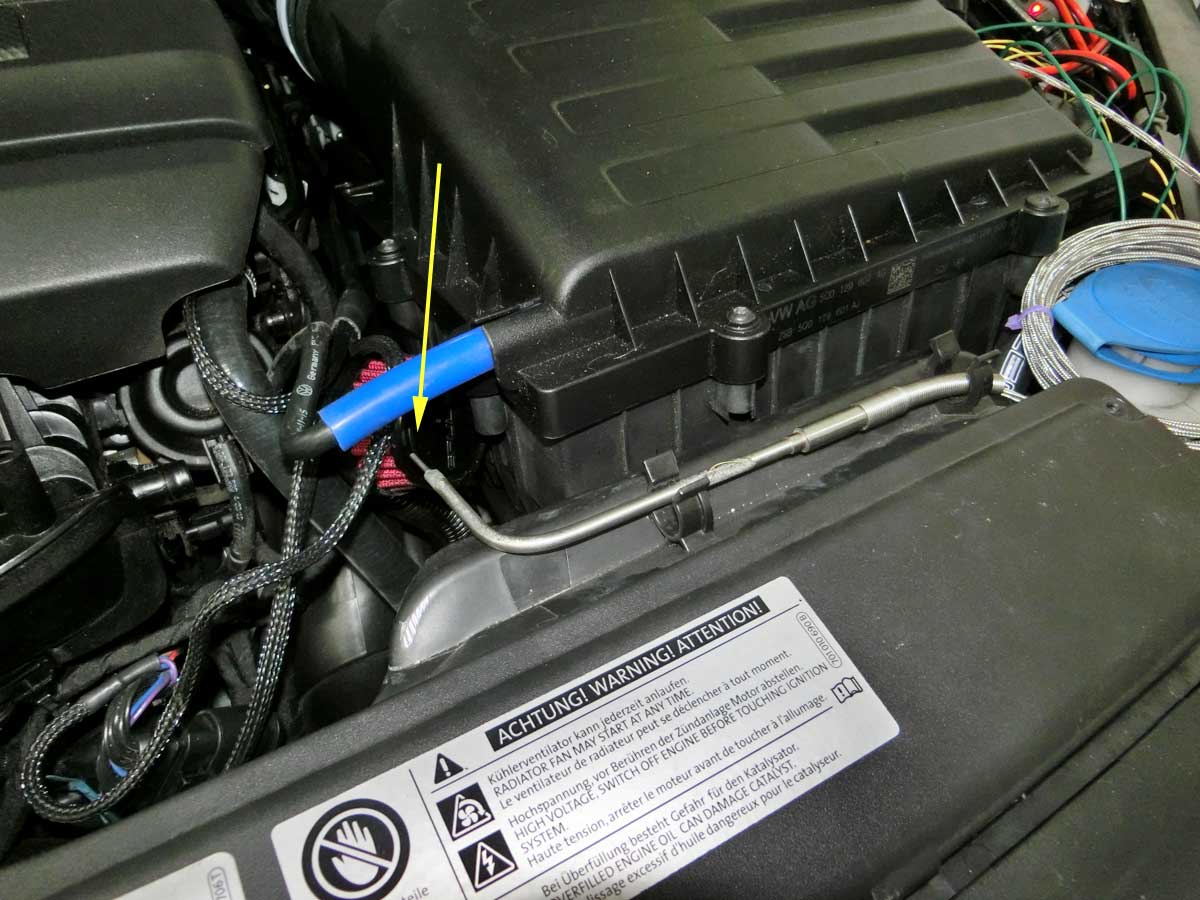
The second is placed toward the rear of the engine compartment in the area near the turbocharger inlet elbow:
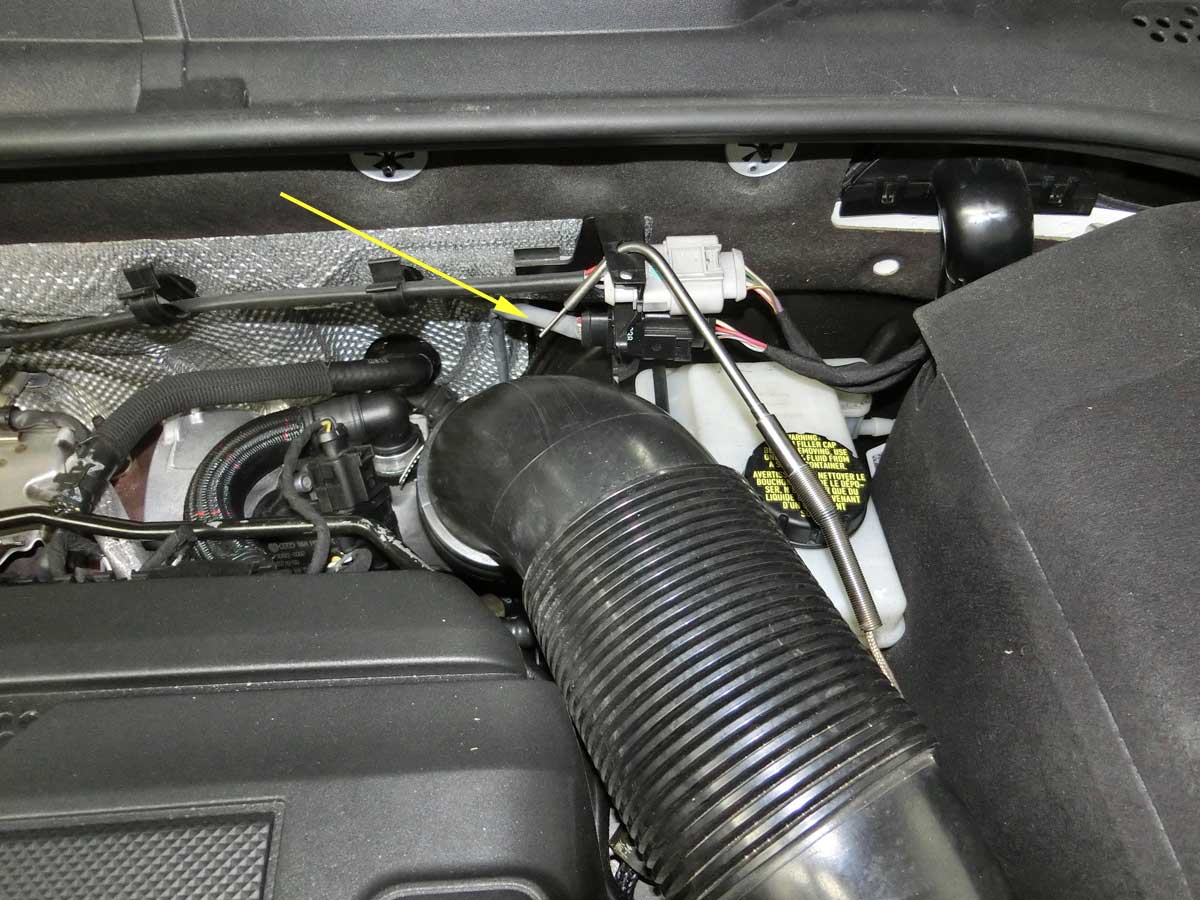
With both sensors in place and power supplied the system checked out to take some temperature readings.
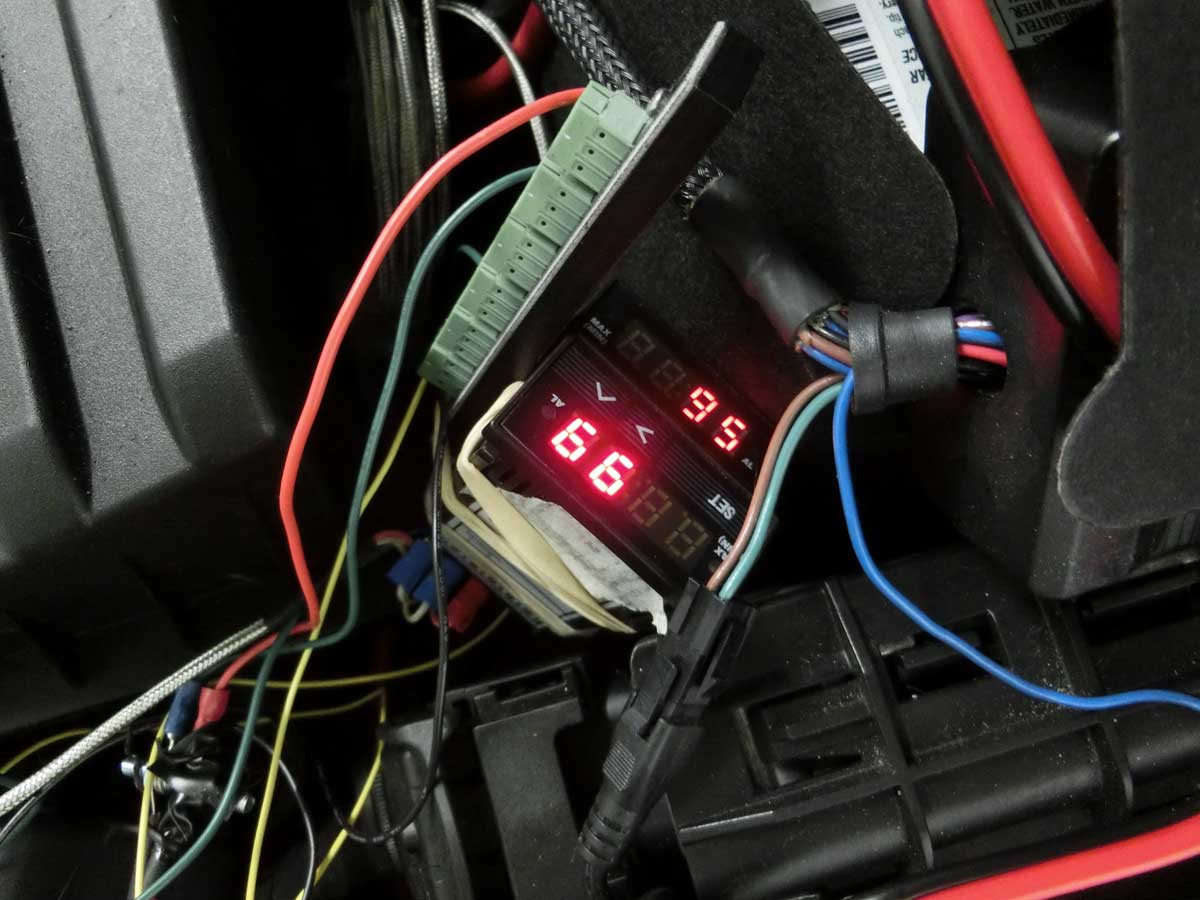
The GTI is being operated with an APR direct fit intercooler replacing the stock GTI intercooler and an eBay FMIC connected as a bicooler.
The Test:
To get an idea of how the temperature under the hood changes the car was operated in a typical ‘for me’ daily driver manner. First a run to the grocery, transport passengers within a residential area, and then cruise around on roadways with speeds varying between 30-55 mph.
Outside air temperature during the time of the drive was 84F, varying one degree above and below.
The Results:
The chart below shows a compilation of the vehicle speed, air temperature reported by the GTI intake air temperature sensor, and the readings from the two temperature probes within the engine compartment.
The outside air temperature (OAT) was added as a straight line for reference.
(Click on image for a larger picture)
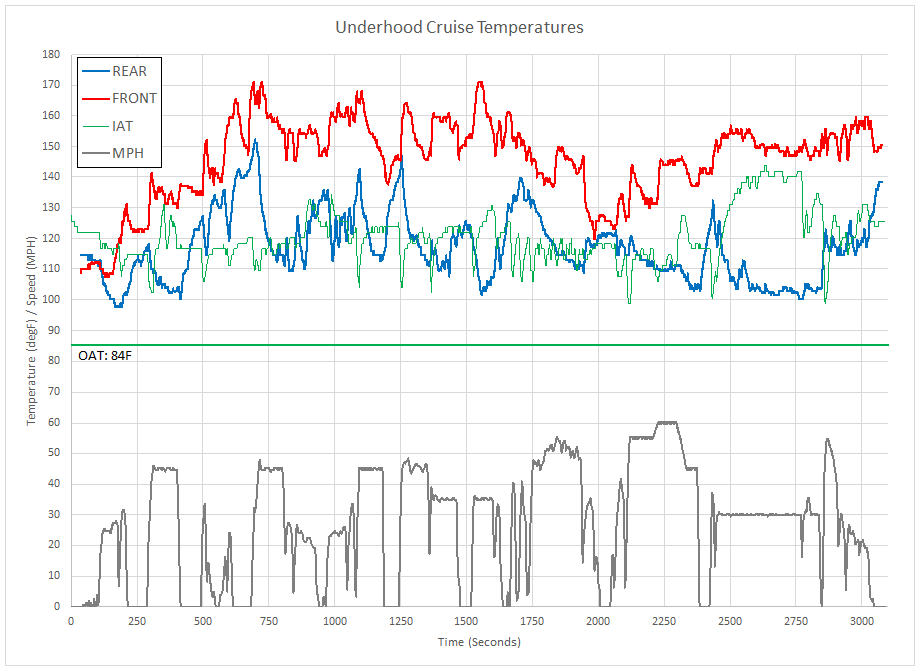
Conclusions:
The temperature under the hood varies a significant amount with varying operating speeds. Most interestingly the temperature at the front sensor is consistently higher than the temperature at the rear sensor.
These results make a further look at air intake options something worth putting effort into.

